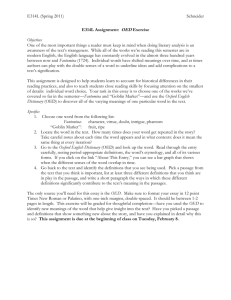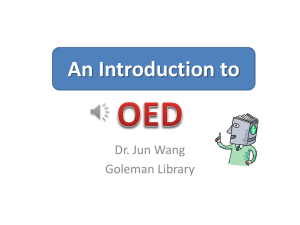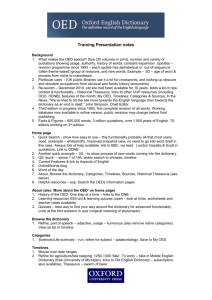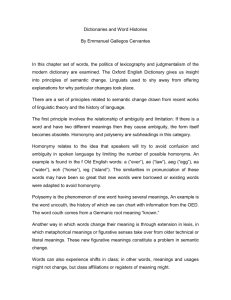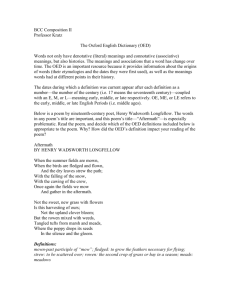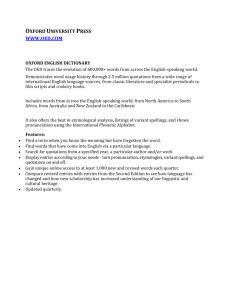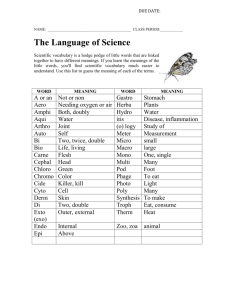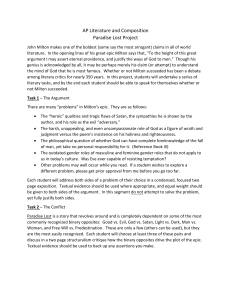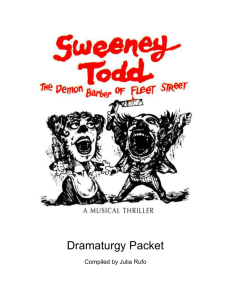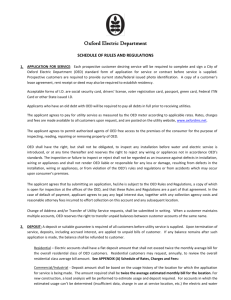Wyatt, “My Galley” (and Petrarch - Blogs@Baruch
advertisement
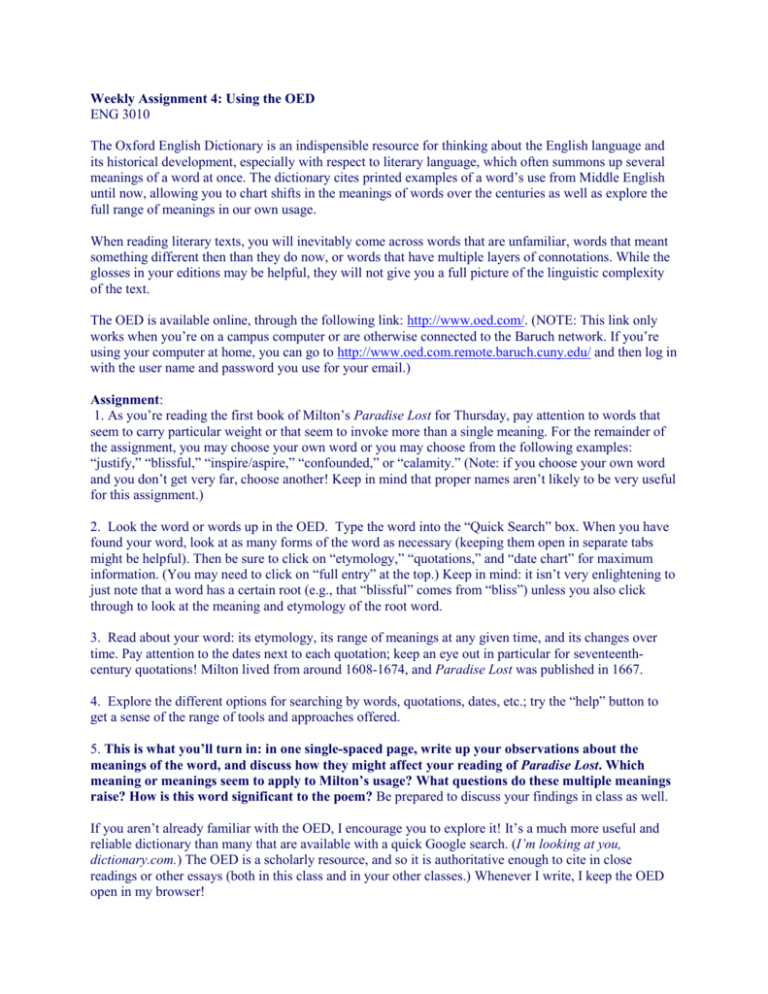
Weekly Assignment 4: Using the OED ENG 3010 The Oxford English Dictionary is an indispensible resource for thinking about the English language and its historical development, especially with respect to literary language, which often summons up several meanings of a word at once. The dictionary cites printed examples of a word’s use from Middle English until now, allowing you to chart shifts in the meanings of words over the centuries as well as explore the full range of meanings in our own usage. When reading literary texts, you will inevitably come across words that are unfamiliar, words that meant something different then than they do now, or words that have multiple layers of connotations. While the glosses in your editions may be helpful, they will not give you a full picture of the linguistic complexity of the text. The OED is available online, through the following link: http://www.oed.com/. (NOTE: This link only works when you’re on a campus computer or are otherwise connected to the Baruch network. If you’re using your computer at home, you can go to http://www.oed.com.remote.baruch.cuny.edu/ and then log in with the user name and password you use for your email.) Assignment: 1. As you’re reading the first book of Milton’s Paradise Lost for Thursday, pay attention to words that seem to carry particular weight or that seem to invoke more than a single meaning. For the remainder of the assignment, you may choose your own word or you may choose from the following examples: “justify,” “blissful,” “inspire/aspire,” “confounded,” or “calamity.” (Note: if you choose your own word and you don’t get very far, choose another! Keep in mind that proper names aren’t likely to be very useful for this assignment.) 2. Look the word or words up in the OED. Type the word into the “Quick Search” box. When you have found your word, look at as many forms of the word as necessary (keeping them open in separate tabs might be helpful). Then be sure to click on “etymology,” “quotations,” and “date chart” for maximum information. (You may need to click on “full entry” at the top.) Keep in mind: it isn’t very enlightening to just note that a word has a certain root (e.g., that “blissful” comes from “bliss”) unless you also click through to look at the meaning and etymology of the root word. 3. Read about your word: its etymology, its range of meanings at any given time, and its changes over time. Pay attention to the dates next to each quotation; keep an eye out in particular for seventeenthcentury quotations! Milton lived from around 1608-1674, and Paradise Lost was published in 1667. 4. Explore the different options for searching by words, quotations, dates, etc.; try the “help” button to get a sense of the range of tools and approaches offered. 5. This is what you’ll turn in: in one single-spaced page, write up your observations about the meanings of the word, and discuss how they might affect your reading of Paradise Lost. Which meaning or meanings seem to apply to Milton’s usage? What questions do these multiple meanings raise? How is this word significant to the poem? Be prepared to discuss your findings in class as well. If you aren’t already familiar with the OED, I encourage you to explore it! It’s a much more useful and reliable dictionary than many that are available with a quick Google search. (I’m looking at you, dictionary.com.) The OED is a scholarly resource, and so it is authoritative enough to cite in close readings or other essays (both in this class and in your other classes.) Whenever I write, I keep the OED open in my browser! To get you started, an example: In the first Book of Paradise Lost, the poet asks, “Who first seduced them [the angels] to that foul revolt?” (1.33). Of course, the entire story of Paradise Lost is about an act of seduction, but did “seduce” have the erotic connotation in Milton’s time that it has now? Let’s see. This first sense seems most obviously relevant: Satan definitely persuades the angels, servants of God, to desert their leader. We can also see from the examples that this meaning was used in the seventeenth century; Paradise Lost is even cited as an example. This second meaning also seems to be invoked by Milton. It is also a historically-available meaning, and we might also note that this meaning is the more literal one if we look at the etymology of the word back in the previous screencap (“to lead aside or away”). Ah, this speaks to the question we were asking: “seduce” also has a sexual connotation, and it looks like that meaning would have been available to Milton. (Note that it isn’t necessary to show that Milton is himself cited by the OED for a particular entry—just to show that there are citations from before the time of his writing.) We should think, then, about each of these meanings when we encounter the word in Milton. One might be the most relevant, but the others may also be called to mind. We’ll have to pay attention to the surrounding context to decide. Finally, a meaning that doesn’t seem relevant. This particular meaning of seduce was not used by Milton. The OED also tells us that it isn’t really used now. (“Obs.” stands for “obsolete.”)
